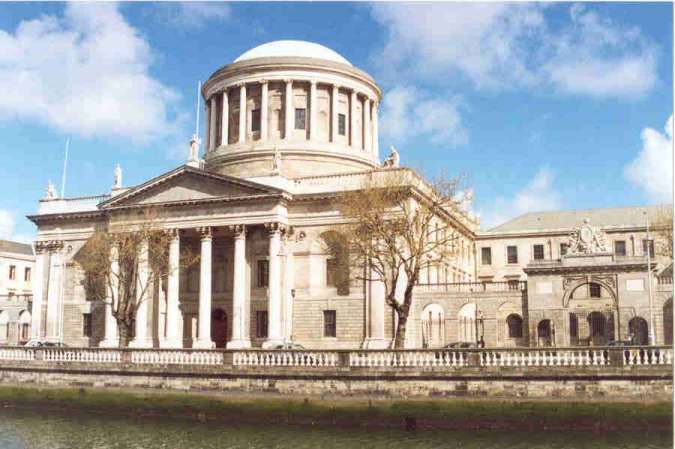Public Meeting on the Seanad Referendum
I’ll be holding a public meeting, where an open discussion will take place on the Seanad and the Court of Appeal referenda.
I’ll be holding a public meeting, where an open discussion will take place on the Seanad and the Court of Appeal referenda.
The Child Care (Amendment) Bill 2009 was discussed in the Seanad this week. The Bill provides a statutory scheme for the High Court to have exclusive jurisdiction to hear special care cases, abolishes the Children Act Advisory Board (CAAB), and makes a number of changes to the 1991 Child Care Act.
A number of other bodies took the trouble to brief Members on the Child Care (Amendment) Bill 2009. The information they provided has proven extremely useful to Members as they consider the Bill. It is always of assistance when interested bodies take the time to prepare briefings, meet Members and share with them their experiences and also the difficulties they perceive in respect of the practical, day-to-day operation of agencies, services of the State, etc. relating to children and also the problems they believe may arise in the context of legislation being brought forward.
Focus Ireland took the trouble to provide briefing information. To some extent, that organisation’s document provides an answer to the question posed by others in respect of the possible or potential cost to the State if aftercare services were to be placed on a statutory footing. It is not possible to make a direct analogy with Northern Ireland in this regard. However, the example of Northern Ireland was the best Focus Ireland could provide in estimating the ultimate cost. Focus Ireland indicates that the equivalent cost of providing the range of aftercare services available in Northern Ireland in the Republic of Ireland would be just under €11 million per annum. That figure is based on a total of 411 care leavers per annum. If it is possible for Focus Ireland to quantify the cost, it should also be possible for the Minister of State to do so. I agree with those who stated that it would be important to place aftercare services on a statutory footing in order that there might be some expectation among people of their being available. It is also important that proper controls, guidelines and supervision be put in place in respect of such services.
The Bill is welcome. However, it provides a curious case study in respect of failures in public policy. I do not lay all the blame for such failures at the door of the Minister for Children. These failures date back many years, perhaps even a number of decades. The Minister may wish to reflect on this and refer to it in his reply.
 We need to clarify the Minister for Health and Children’s comment on Tuesday in respect of a commitment on the part of the Government to introduce legislation to regulate assisted human reproduction. The Supreme Court made an extremely important decision in which it again pointed to a failure on the part of the Houses of the Oireachtas to implement legislation in this area. Once again, the Supreme Court has had to plug the gaps outrageously left by us, the legislators. The Government is primarily responsible for introducing legislation in this area.
We need to clarify the Minister for Health and Children’s comment on Tuesday in respect of a commitment on the part of the Government to introduce legislation to regulate assisted human reproduction. The Supreme Court made an extremely important decision in which it again pointed to a failure on the part of the Houses of the Oireachtas to implement legislation in this area. Once again, the Supreme Court has had to plug the gaps outrageously left by us, the legislators. The Government is primarily responsible for introducing legislation in this area.
When decisions such as the Supreme Court ruling of yesterday are made, it is often argued that there are many views and significant disagreement on the issue in question. I anticipate that government members may make the perfectly reasonable argument that assisted human reproduction is a complicated issue. While there are many views on it, the responsibility of legislators is not to sit back and do nothing, as we have done many times when it became clear there were many views on an issue, but to face up to the fact and work out carefully and meticulously, perhaps in committee, how precisely we should legislate. Assisted human reproduction is an important and sensitive issue on which legislation should be introduced at the earliest possible time.
I was invited to join Mary Wilson on Drivetime on RTE Radio 1 last Friday evening. The other guests to review the week’s news were communications specialist Terry Prone and journalist Sean Donnelly. The discussion included the Supreme Court ruling on Risk Equalisation and the visit of French President Nicolas Sarkozy this week.
To listen to the show, click here. (Discussion begins at 39mins 45secs)
 Trathnóna inné, thosaigh an Bhille na nDlí-Chleachtóirí (An Ghaeilge) 2007. Yesterday evening, the Legal Practitioners (Irish Language) Bill 2007 began. My second stage speech is below:
Trathnóna inné, thosaigh an Bhille na nDlí-Chleachtóirí (An Ghaeilge) 2007. Yesterday evening, the Legal Practitioners (Irish Language) Bill 2007 began. My second stage speech is below:
Is ceart an-thábhachtach, atá ag gach duine sa tír, an cheart an Gaeilge a úsáid in imeachtaí os comhair na cúirte. Is fiú mórán an cheart sin. Caithfimid a bheith cinnte go bhfuil an tseirbhís sin le fáil sna cúirteanna ag gach éinne a theastaíonn uathu tairbhe a bhaint as. Ba chóir dúinn córas éifeachtach a chur i bhfeidhm. Caithfidh an chóras sin a bheith macánta freisin. Luaigh an Aire an Acht Lucht Cleachtuithe Dlí (Cáilíocht) 1929, a fhorálann gur chóir d’abhcóidí “leor-eolas” ar an dteanga a bheith acu. Mínítear “leor-eolas” san Acht sin mar an méid sin oilteachta i labhairt agus i scríobh na Gaeilge agus is leor chun a chur ar chumas cleachtóra dlí, le héifeacht, treoracha a ghlacadh, comhairle a thabhairt do chliaint, finnéithe a cheistiú agus imeachtaí sa Ghaeilge a thuiscint. Is abhcóide mé le blianta fada anuas agus dá bhrí sin, is féidir liom an cheist a chur - cé mhéad abhcóidí a bhfuil na scileanna sin acu, go macánta?
Tá suim ag a lán abhcóidí sa Leabharlann Dlí sa Ghaeilge. Níl siad in ann cásanna a dhéanamh sna cúirteanna trí Ghaeilge mar níl an caighdeán oiriúnach acu. Tá sé ag roinnt abhcóidí, ach níl sé ag formhór dóibh. We must be honest about having a system in place that allows and provides for an efficient and reliable system to be available for people who wish to have their business in court conducted in Irish. There is little point in continuing with what in reality has been a fiction. The fiction goes back to the 1929 Act where that system was put in place. For 80 years it simply has not been the reality at the level that was contemplated in 1929.
Rinne mé an scrúdú seo i 1987, nuair a bhí mé in Óstaí an Rí. Bhí olltoghchán ar siúl ag an am céanna. Bhí mé ag obair i RTE ag an am sin. Tháinig na torthaí amach an lá tar éis an toghchán. Ní raibh mórán ullmhúcháin déanta agam don scrúdú Gaeilge an lá chéanna. Chuaigh me isteach go dtí Óstaí an Rí ar mo rothar chun bualadh leis an scrúdaitheoir. Bhí an-suim aige sna torthaí ó Chontae Maigh Eo. D’éirigh liom sa scrúdú Gaeilge.
I was delighted to pass the test but somewhat miffed to discover that my friend, who had never learned a single word of Irish ever because he had been given some sort of dispensation or exemption in school, passed with equally flying colours ten minutes later. This was the sort of fiction that was evident. Admittedly, this has improved in recent years. I agree very strongly with my colleagues’ point that we need to put in place a system that does justice to the language and makes presumptions about people’s knowledge thereof. As Senator McDonald rightly said, the system should encourage professional lawyers to learn Irish and reach a certain level of proficiency while at the same time favouring those who make an effort to reach a higher level.
There was some debate on a number of amendments tabled by my colleague, Deputy Brian O’Shea, in the Dáil. The then Minister of State, Deputy Carey, said that during Committee Stage in this House, he would return to some of the matters raised. Nuair a bheidh an díospóireacht againn, b’fhéidir go mbeidh further discussion againn on individuals who are already in the system. I refer also to those who went through the system 30 or 40 years ago but who did not pass the test and were deprived of their qualification. I do not know why they did not have the same outcome as my friend who did not have a word of Irish. Perhaps they did not have the same examiner.
I welcome the basic thrust of the Bill. There is no question that it is progressive although there are a few issues I would like to revisit on Committee and Remaining Stages.
 Labour always believed that the former Taoiseach’s High Court action challenging the Mahon Tribunal’s right to question him about certain statements he made in the Dail was more about delaying the work of the Tribunal than upholding the constitutional right to privilege of members of the Oireachtas.
Labour always believed that the former Taoiseach’s High Court action challenging the Mahon Tribunal’s right to question him about certain statements he made in the Dail was more about delaying the work of the Tribunal than upholding the constitutional right to privilege of members of the Oireachtas.
The tactic worked in terms of delaying the Tribunal from questioning him on matters of relevant public interest. However, it could not prevent his exit from office much earlier than he had planned, which was largely due to the determination of Labour and other opposition parties to hold him to account politically.
At the time the action was initiated we acknowledged that there were serious legal and constitutional issues surrounding the privilege of members of the Oireachtas. A number of the issues raised by Mr. Ahern’s legal team were conceded by the Tribunal early in the hearing. The High Court judgement on the outstanding matters will now have to be studied to establish the extent to which the questions relating to privilege have now been further clarified.
Given that the Tribunal has access to its own information and the fact that many of the statements made by the Taoiseach in the Dail were also repeated outside, I do not believe that this judgment will have a significant impact on the Tribunal’s further inquiries into Mr. Ahern’s financial affairs.
Necessary cookies are absolutely essential for the website to function properly. This category only includes cookies that ensures basic functionalities and security features of the website. These cookies do not store any personal information.
Any cookies that may not be particularly necessary for the website to function and is used specifically to collect user personal data via analytics, ads, other embedded contents are termed as non-necessary cookies. It is mandatory to procure user consent prior to running these cookies on your website.